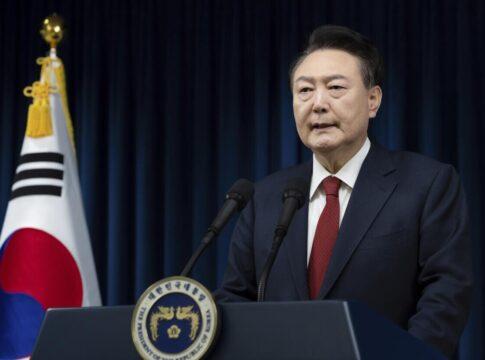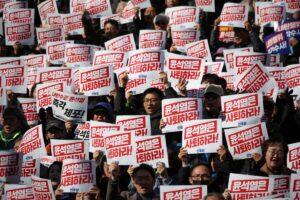In an unprecedented and swiftly retracted move, South Korean President Yoon Suk-yeol declared martial law late Tuesday, citing threats from alleged pro-North Korean forces. The announcement, which harkened back to South Korea’s authoritarian past, was reversed within hours following unanimous opposition from the National Assembly.
The surprise declaration marked the first such action since 1979 and triggered widespread condemnation, including from Yoon’s own conservative People Power Party. Opposition leader Lee Jae-myung of the Democratic Party labeled the move “illegal and unconstitutional.”
Myunghee Lee, an assistant professor of international relations at Michigan State University, noted Yoon’s struggles with internal party divisions and opposition blockades. His low approval rating of 20%, compounded by scandals, left him politically vulnerable. Lee described Yoon’s martial law declaration as puzzling, adding, “It is regarded as a foolish move given his political position.”
Yoon’s foreign policy has seen efforts to strengthen ties with Washington, yet his attempts to improve relations with Japan have been met with skepticism due to historical grievances. His stance on North Korea has been notably hawkish compared to his predecessor Moon Jae-in, who advocated for engagement with the North.
Alexander Lipke from the European Council on Foreign Relations suggested that South Korea’s domestic crisis could hamper its foreign policy efforts, particularly in supporting Ukraine and regional cooperation with the US and Japan.
Following the martial law debacle, six opposition parties filed an impeachment motion against Yoon, which needs a two-thirds parliamentary majority and approval from the Constitutional Court to proceed. The Assembly Speaker Woo Won-sik is expected to schedule a session to debate the motion imminently.
The political future for Yoon appears grim as his administration faces a potential mass resignation of senior officials, adding to the uncertainty in South Korea’s political landscape.



